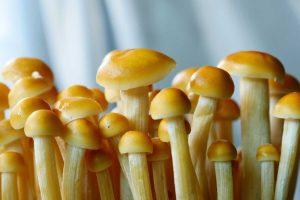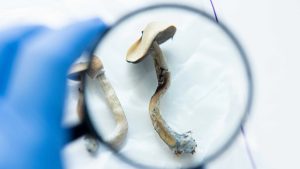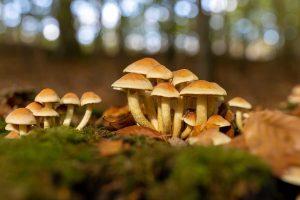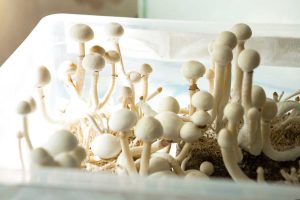Guide to Psilocybin Therapy
- Jake Peter
- Published: December 16, 2023
- Fact-checked by Dr. Desiree Granados
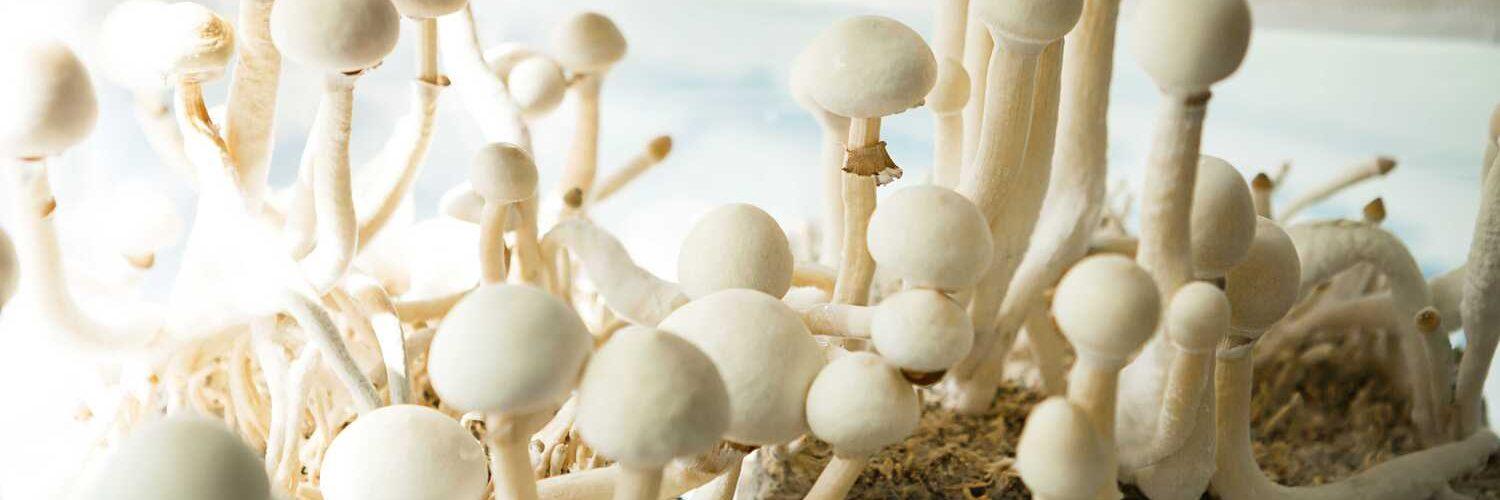
The Sanctuary Wellness Institute does not offer psilocybin therapy. This article is meant for informational purposes only.
A societal reassessment of how psilocybin should be used and regulated is underway thanks to the promise of new research. Studies have shown that psychedelics offer a potentially life-changing treatment option for patients suffering from a wide variety of mental health conditions.
Today, psilocybin therapy is an emerging intervention with broad applications for many chronic conditions that affect patients’ psychological health. While it’s not yet formally approved for the treatment of any medical conditions, the United States Food and Drug Administration (FDA) currently allows researchers to conduct clinical trials with the drug.
Here, we will discuss how psilocybin affects the brain, its therapeutic applications, how to participate in psilocybin therapy, and more. If you suffer from a debilitating psychological condition and have not achieved relief through neuropharmacology, psilocybin therapy could be the alternative solution you’ve been looking for.
What Is Psilocybin?
Psilocybin is the active chemical found in psilocybe mushrooms that causes their psychedelic and hallucinogenic effects. It’s a tryptamine alkaloid that’s molecularly similar to serotonin.
Psilocybin mushrooms are categorized as hallucinogens, which places them in the same class as other psychedelic drugs like cannabis, ayahuasca, ketamine, MDMA, DMT, peyote, LSD, and mescaline. When these mushrooms are consumed recreationally, they’re commonly referred to as “shrooms” or “magic mushrooms.”
Psilocybin is safe for human consumption since it’s not habit-forming, generally causes mild side effects, and cannot cause a lethal overdose. When the compound’s ingested, the body converts it into psilocin, which then enters the brain and induces the euphoria and receptiveness associated with “tripping.”
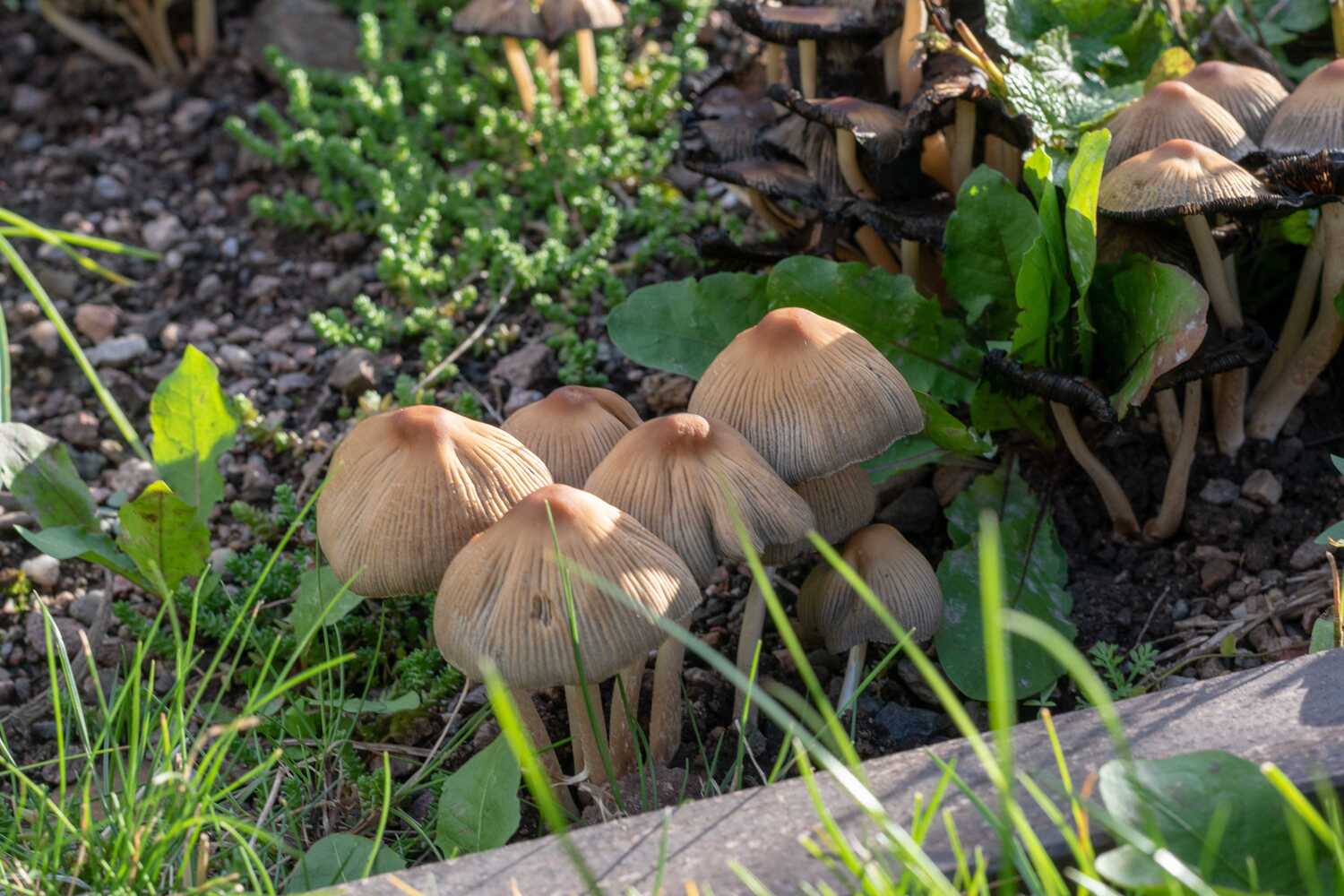
History of Psilocybin Mushrooms
While widely associated with recreational use for most of the 20th century, humans have been consuming the hallucinogenic substance known as psilocybin for thousands of years. There is evidence of hallucinogenic mushroom use by indigenous people in Africa dating back to 9,000 BC. Ancient cultures such as the Aztecs and Mayans also used magic mushrooms (or, as they referred to them, “teonanácatl,” which translates to “flesh of the gods”) for religious and medicinal purposes.
Psilocybin 1950-1960’s
American R. Gordon Wasson, an amateur mycologist, observed and documented an indigenous magic mushroom ceremony in Mexico in 1955 and brought samples back to the United States. Life magazine published a photo essay detailing Wasson’s experiences that swept the nation. Thereafter, psychiatry researchers embraced the use of psilocybin and other psychedelics like LSD for treating debilitating psychological and behavioral conditions.
Psilocybin was first identified and extracted by Swiss chemist Albert Hoffman in 1958. He determined the compound was the source of magic mushroom’s psychoactive effects.
Through the 1960s, neuroscience researchers at Harvard University and elsewhere studied psilocybin and explored its potential clinical applications. Early trials assessed the compound as a treatment for mental health conditions like depression, as well as alcohol use disorder. During this decade, psilocybin became closely associated with the U.S. counterculture movement.
Psilocybin 1970-2000
President Richard Nixon signed the Controlled Substances Act in 1970, classifying psilocybin and other psychedelics as Schedule I narcotics. This label criminalized the compound and established stiff legal penalties for possession and use. It also ended all research into therapeutic applications of psychedelics because doctors could no longer legally obtain the compound or administer it for clinical trials.
Illegal recreational use continued throughout the 20th century, and many patient advocates lobbied lawmakers to reclassify psilocybin due to its ability to improve people’s well-being. In 2000, researchers at Johns Hopkins secured regulatory approval to commence new clinical trials using psilocybin.
Psilocybin Today
Those researchers’ early successes sparked a renaissance. Over the next 20 years, the United States’ understanding of psilocybin and its positive effects on the brain evolved rapidly and led to further state-sanctioned clinical trials.
Today, psilocybin remains classified as a Schedule I substance under the Controlled Substances Act, but the Food and Drug Administration (FDA) has released official guidelines for clinical trials and could loosen the legal restrictions around the drug soon. Oregon and Colorado have legalized psilocybin mushrooms, and cities such as Oakland, CA and Somerville, MA have decriminalized the substance.
More regions are expected to follow suit as the American public continues to embrace psilocybin.
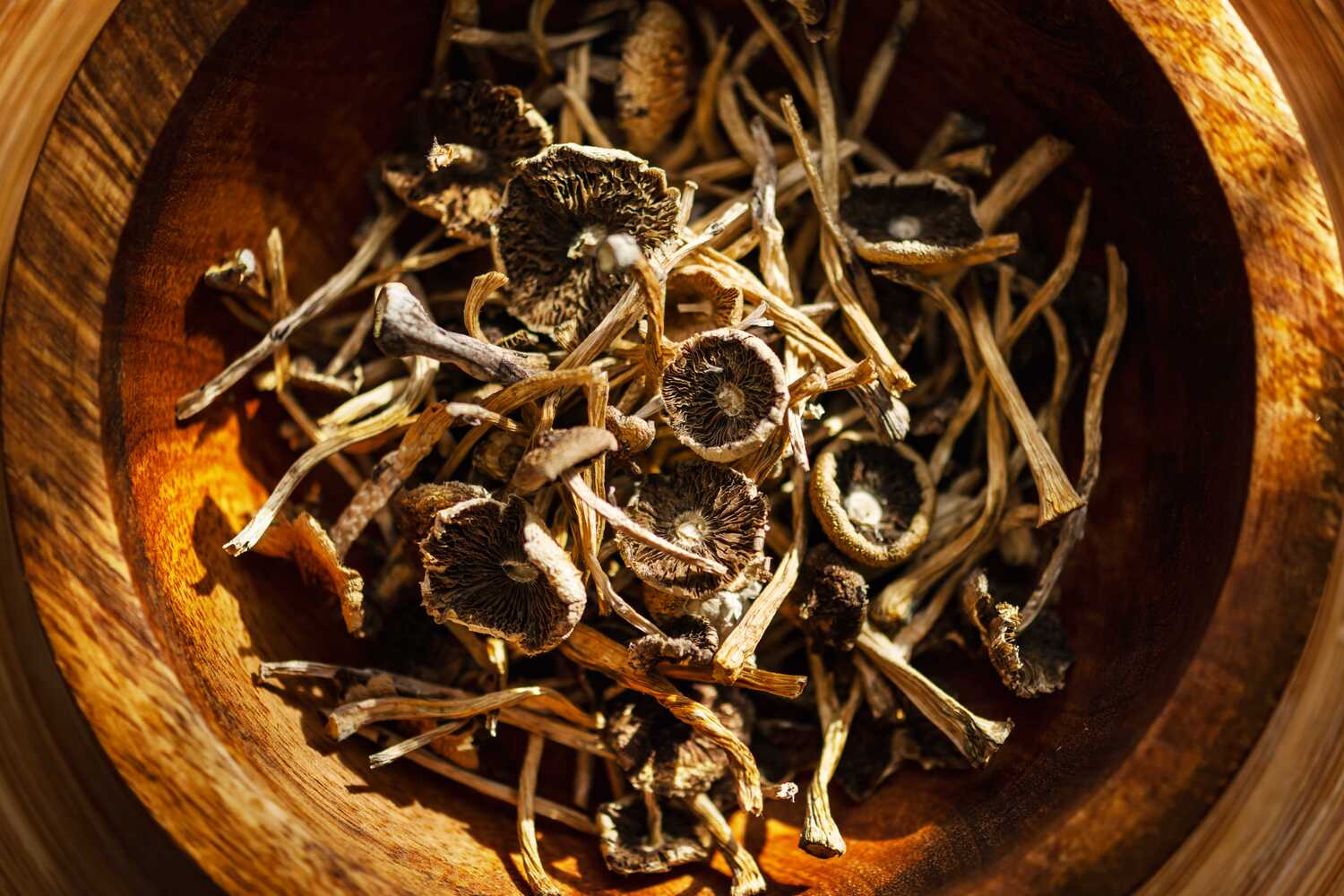
What Are the Benefits of Psilocybin Use?
Psilocybin is non-toxic, and the compound mimics the neurotransmitter dopamine to help bolster and stabilize the user’s mood. This action makes it a viable treatment for depression, anxiety, obsessive-compulsive disorder (OCD), anorexia nervosa, and other psychiatric conditions that lack reliable treatment methods.
Many patients have also been able to stop using opioids thanks to psychedelic therapy. Many have also been able to stop smoking or drinking to excess. Although research is ongoing, psilocybin mushrooms have shown promise as an alternative treatment option for those suffering from epilepsy and other seizure disorders.
Research has also indicated that psilocybin spurs neurogenesis, or creates more connections between neurons. This growth may be the key to managing degenerative neurological conditions like Parkinson’s disease and dementia, as well as treating brain damage caused by strokes and traumatic head injuries.
What Are the Side Effects and Risks of Using Psilocybin Mushrooms?
Psilocybin is a non-toxic substance that the body can safely metabolize and eliminate. The compound is non-addictive and not capable of causing fatal overdoses. That said, habitual users can develop a tolerance for the drug and start requiring higher and higher doses to achieve the same effects.
Your history with psychedelics, your unique biochemistry, and the size of the dose you consume will influence your response to psilocybin treatment. In general, the primary side effects of psilocybin include:
- Confusion
- Distressing hallucinations
- Elevated blood pressure
- Increased heart rate
- Nausea
- Paranoia
“Bad Trips” with Psilocybin
The drug’s cardiac effects can be more intense when you experience a “bad trip.” Bad trips result from the fear and paranoia that can arise due to the altered state of perception induced by psilocybin. While bad trips aren’t inherently dangerous, patients undergoing them may take risky actions in response to their hallucinations and inadvertently harm themselves or others.
Your surroundings can strongly influence your psychedelic experiences. Taking psilocybin in an unfamiliar place may prime you for a bad trip. This is why psilocybin should only be used therapeutically under the direction of a trained professional. Clinically supervised use of psilocybin minimizes your risk of a bad trip since clinicians work to quell patients’ anxiety and guide them through their psychedelic trips during psilocybin therapy sessions.
HPPD – Hallucinogen-Persisting Perception Disorder
A more rare yet still relevant risk of psilocybin use is hallucinogen-persisting perception disorder (HPPD). Patients with this condition experience flashbacks to their psychedelic hallucinations that can persist for years. These flashbacks can be pleasurable for some but distressing for others.
Researchers have theorized that a history of psychedelic drug use causes HPPD, but they don’t yet fully understand how or why the condition arises. It’s possible to experience HPPD after a single psychedelic experience, making it all the more important to only use shrooms under the supervision of a clinical professional.
How Does Psilocybin Affect the Brain?
Psilocybin acts on the brain in two ways. Not only does it facilitate connectivity between areas of the brain that aren’t communicating as well as they should be, but it stifles communication between areas that normally interact often.
Once in the brain, psilocybin binds to the serotonin 5-HT2A receptor. As a result, it mimics many of the “feel good” hormone’s effects and induces euphoric feelings.
Psilocybin also depresses function in the prefrontal cortex, where information is sorted and prioritized. This dampening leads to the elevated awareness and expanded perception users often experience while “tripping.”
The compound also enhances neuroplasticity by spurring new connections between disparate regions of the brain and strengthening pre-existing ones. This rewiring process is vital to psilocybin’s therapeutic value because it can yield insights into the user’s condition and enhance their cognitive performance.
Is Psilocybin Legal?
The United States Drug Enforcement Agency (DEA) considers psilocybin a Schedule I drug, making it federally illegal. Psilocybin use and possession remains illegal in 44 U.S. states. Possession and use of the drug in these regions is punishable by fines and, in some cases, even incarceration. It also remains illegal to use psilocybin mushrooms on federal property or transport it across state lines.
That said, a nationwide reevaluation of psychedelics is occurring thanks to promising research and patient success stories. Multiple states are formally exploring psilocybin legalization and formal treatment programs.
You can legally use and possess magic mushrooms in Oregon and Colorado. Oregon opened psilocybin treatment centers in 2023, and Colorado is in the process of doing so itself.
Possession of psilocybin has been decriminalized in a number of other cities and townships throughout the United States, as well as in Washington D.C. Decriminalization means law enforcement is discouraged from actively policing personal possession and use of the substance in their jurisdiction. However, if you sell, distribute, or publicly use psilocybin in one of these communities, you still run the risk of legal penalties.
It’s important to be vigilant about where you obtain psilocybin. Regardless of where you live, transactions between private parties are illegal. If permitted in your area, the safest way to use psilocybin is by enrolling in an authorized clinical trial.
The purchasing of spores exists in a legal gray area because psilocybe mushrooms don’t contain psilocybin until they mature. If you decide to grow your own mushrooms, be sure to use spores obtained from a trustworthy vendor.
The next step in psilocybin’s future is FDA approval of the compound as a treatment for specific conditions. The clinical trials occurring nationwide continue adding evidence to its case for DEA reclassification and FDA approval.
In addition, the anecdotal evidence coming to light as patients share their success stories may help fuel a change in public opinion. Ongoing education about psychedelics could also lead more people to recognize psilocybin’s medical benefits and spur lawmakers to action.
What Is Psilocybin Therapy?
Psilocybin therapy combines psilocybin with conventional talk therapy to treat a variety of mental health conditions.
Psilocybin microdosing is a safe and effective treatment when administered under a psychiatric professional’s supervision. Through microdosing, researchers believe individuals can experience the psychological benefits of psilocybin without the anxiety or side effects of a bad trip.
What Conditions Can Psilocybin Treat?
Research into the therapeutic applications of psilocybin is ongoing. While the substance is not yet FDA-approved, the strong results of initial trials indicate its potential to treat numerous conditions.
Psilocybin’s interaction with serotonin receptors allows it to treat certain mental health issues, particularly when the drug is combined with psychotherapy. For one, psilocybin is being actively studied as an intervention for compulsive behaviors. The treatment has shown promise in helping individuals quit smoking, drinking alcohol to excess, and using opiates.
In addition, studies have indicated it can help treat anxiety disorders, major depressive disorder, PTSD, OCD, and schizophrenia when combined with talk therapy. Its psychedelic effects can expand patients’ perspectives on life and open pathways for healthier cognitive habits and behavioral patterns. This makes a dose of psilocybin an attractive alternative to pharmaceuticals.
Thanks to its therapeutic effects, psilocybin is also being studied as an intervention for patients coping with terminal diagnoses and life-threatening diseases. Studies of individuals with cancer have revealed an improved quality of life and reduced anxiety after a psilocybin dose is consumed.
Researchers in the psychiatry and neuropharmacology fields are also experimenting with psilocybin as a migraine and epilepsy treatment. They have speculated that the drug’s rewiring effect and the enhanced neural plasticity it engenders can enable the brain to bypass the anatomical cause of epilepsy. In addition, some have posited that its anti-inflammatory properties can mitigate the neurological signaling that creates migraines.
Researchers in the field of neuropsychopharmacology are also studying psilocybin as a treatment for Alzheimer’s, dementia, Parkinson’s, traumatic brain injury, and stroke. While studies are in their earliest phases, researchers are exploring if the neurogenic potential of psilocybin can repair cognitive loss from degenerative conditions and brain injuries.
Psilocybin may be able to elevate these patients’ quality of life by enhancing their cognition, decelerating or even stopping their neurological atrophy, and improving their mood.
What Makes a Good Candidate for Psilocybin Therapy?
The best candidates for psilocybin therapy are those living in regions where the clinical use of psychedelics is legal and those who qualify for clinical trials. Virtually all people without prior adverse reactions to psychedelics are good candidates for this treatment.
That said, those with a history of schizophrenia or similar mental disorders should avoid psilocybin due to its potential side effects.
What Happens During Psilocybin Therapy?
Preparation
First, new patients undergo an intake session. During this session, the provider educates the patient on psilocybin, the effects of the drug, and its safety.
Both the provider and the patient work together to create a trusting clinical relationship. Establishing confidence maximizes their likelihood of successful psilocybin therapy.
Psilocybin Session
The next phase of treatment involves the ingestion of psilocybin. The patient typically consumes their dose of mushrooms orally, often in the form of capsules, tea, or dried shrooms.
The patient ingests their dose in a safe and controlled environment and lies down while the drug takes effect. They often listen to a curated selection of music or soothing sounds as they wait for the drug to kick in.
Clinicians monitor the patient during their trip. These supervising therapists are present to guide them through any distress they experience and help them process their thoughts and emotions. In this way, they steer their patients away from bad trips.
Integration
After the effects of the drug abate, a clinician holds a talk therapy postmortem with the patient in which they unpack and analyze the psychedelic experience. This is where the patient learns how to harness the knowledge they gained from their “trip” to improve their cognitive and behavioral habits.
How Can You Participate in Psilocybin Therapy?
Psilocybin therapy is currently only legal in Colorado and Oregon. For most Americans, the only legal way to undergo psilocybin therapy is by participating in a clinical trial.
You can find psilocybin clinical trials using the U.S. National Library of Medicine’s searchable database. Each study has specific enrollment criteria and aims to assess the effectiveness of psilocybin for a particular disorder or evaluate the impact of the compound on healthy participants.
These studies involve administering psilocybin therapy and documenting patients’ responses in a controlled environment. In general, dosing ranges from 10 mg to 25 mg. States and academic institutions tightly regulate studies to protect patients and maximize their safety.
If selected to participate in one of these studies, you will undergo safe and legal psilocybin therapy. Medical professionals will document your response to the drug. You will also probably attend follow-up visits to discuss the long-term impact of your treatment. All information obtained during the study will be confidential.
Your participation in clinical trials will help further the cause of psychedelic medicine and inform society’s attitude toward psilocybin. In addition, it could help you discover whether psilocybin is a viable alternative treatment option for you.
How we reviewed this article:
- Amitava Dasgupta (2019). Critical Issues in Alcohol and Drugs of Abuse Testing (Second Edition)
https://www.sciencedirect.com/topics/agricultural-and-biological-sciences/psilocin - Project on Psychedelics Law and Regulation (POPLAR) at the Petrie-Flom Center for Health Law Policy, Biotechnology, and Bioethics at Harvard Law School (2021)
https://www.oregon.gov/oha/ - David E Nichols (2020). Psilocybin: from ancient magic to modern medicine
https://pubmed.ncbi.nlm.nih.gov/32398764/ - Scott Houghton (2021). From Medicine to Poison: The Magic Mushroom in 1960s America
https://www.thecollector.com/magic-mushrooms-1960s-america/ - Life magazine (1957). Great Adventures in the Discovery of Mushrooms
https://www.cuttersguide.com/ - ACS Chemistry for Life (2017). Molecule of the Week Archive: Psilocybin
https://www.acs.org/molecule-of-the-week/archive/p/psilocybin.html - John Mascolo (2023). The Controlled Substances Act: Overview
https://www.findlaw.com/criminal/criminal-charges/controlled-substances-act-csa-overview.html - Johns Hopkins Medicine Psychiatry and Behavioral Sciences (2023). Psychedelic Research and Psilocybin Therapy
https://www.hopkinsmedicine.org/psychiatry/research/psychedelics-research - The U.S. Food and Drug Administration (2023). FDA Issues First Draft Guidance on Clinical Trials with Psychedelic Drugs
https://www.fda.gov/news-events/press-announcements/fda-issues-first-draft-guidance-clinical-trials-psychedelic-drugs - David Culver and Jason Kravarik (2022). It’s legal to use psilocybin, or ‘magic mushrooms,’ in Oregon. But that could soon change
https://www.cnn.com/2022/11/04/us/oregon-psilocybin-voter-pushback-ctrp/index.html - Andrew Kenney (2023). What to know about Colorado’s psychedelic law
https://www.cpr.org/2023/06/21/colorado-psychedelic-law-for-psilocybin-mushrooms/ - Psychedelic Alpha (2023). Psychedelic Legalization & Decriminalization Tracker: Mapping Psychedelic Drug Policy Reform in the United States
https://psychedelicalpha.com/data/psychedelic-laws - Sharon Reynolds (2023). How psychedelic drugs may help with depression
https://www.nih.gov/news-events/nih-research-matters/how-psychedelic-drugs-may-help-depression - Adrianna Rodriguez (2022). People who used ‘magic mushrooms’ less likely to develop opioid use disorder, study finds
https://www.usatoday.com/story/news/health/2022/04/07/magic-mushrooms-linked-decreased-risk-opioid-addiction-study/9469652002/ - Kori Lynch, Harry Smith, Kaitlyn Sullivan, and Akshay Syal, M.D. (2022). Psychedelic drug helped people with alcohol use disorder reduce drinking, study shows
https://www.nbcnews.com/health/mental-health/psilocybin-mushroom-help-people-alcohol-use-disorder-rcna44180 - Chris Roberts (2020). New Magic Mushrooms Could Fix Depression, Addiction, Epilepsy, and More
https://observer.com/2020/12/new-magic-mushrooms-psilocybin-cure-depression/ - Kim P.C. Kuypers, Natasha L. Mason, and Cato M.H. De Vos (2021). Psychedelics and Neuroplasticity: A Systematic Review Unraveling the Biological Underpinnings of Psychedelics
https://www.frontiersin.org/articles/10.3389/fpsyt.2021.724606/full - Meghan McCarthy (2023). Can psychedelics help patients with dementia?
https://pennmemorycenter.org/psychedelics-dementia/ - WebMD (2023). Psilocybin – Uses, Side Effects, and More
https://www.webmd.com/vitamins/ai/ingredientmono-1654/psilocybin - Kimberly Holland (2021). What Is Hallucinogen Persisting Perception Disorder (HPPD)?
https://www.healthline.com/health/hppd - Amanda Morris and Kelyn Soong (2023). What do magic mushrooms do to your brain? A midflight crisis raises questions
https://www.washingtonpost.com/wellness/2023/10/26/psilocybin-magic-mushrooms-mental-health/ - Paul Chadderton Ph.D. and Caroline Golden Ph.D. (2022). What Psilocybin Does to the Brain
https://www.psychologytoday.com/us/blog/brain-circuitry-of-action-and-awareness/202209/what-psilocybin-does-to-the-brain - WiseVoter (2023). Mushroom Laws By State
https://wisevoter.com/state-rankings/mushroom-laws-by-state/ - Kristian Foden-Vencil (2023). Oregon now offers psilocybin therapy. Here’s what one of the first patients experienced
https://www.opb.org/article/2023/08/23/psilocybin-mushroom-therapy-oregon-psychedelic-bendable-bend-ptsd-ocd-mental-health/ - Sheraz Sadiq (2023). Despite risks and uncertainty, psilocybin service centers in Oregon open for business
https://www.opb.org/article/2023/08/26/psilocybin-service-centers-oregon-open/ - Alayna Alvarez and Esteban L. Hernandez (2023). How psychedelic “healing centers” will work in Colorado
https://www.axios.com/local/denver/2023/06/26/psychedelic-healing-centers-colorado - Vince Polito and Richard J. Stevenson (2023). A systematic study of microdosing psychedelics
https://www.ncbi.nlm.nih.gov/pmc/articles/PMC6364961/ - NYU Langone Health (2022). Psychedelic Drug Therapy May Help Treat Alcohol Addiction
https://nyulangone.org/news/psychedelic-drug-therapy-may-help-treat-alcohol-addiction - Grant Jones, Joshua Lipson, Matthew K. Nock, and Jocelyn A. Ricard (2022)
https://www.nature.com/articles/s41598-022-08085-4 - Johns Hopkins Medicine (2022). Psilocybin Treatment for Major Depression Effective for Up to a Year for Most Patients, Study Shows
https://www.hopkinsmedicine.org/news/newsroom/news-releases/2022/02/psilocybin-treatment-for-major-depression-effective-for-up-to-a-year-for-most-patients-study-shows - Sunil Aggarwal, Atara Jaffe, Moira Opalka, Conor Watters, and Emily Whinkin (2023). Psilocybin in Palliative Care: An Update
https://www.ncbi.nlm.nih.gov/pmc/articles/PMC10106897/ - Chris Roberts (2020). New Magic Mushrooms Could Fix Depression, Addiction, Epilepsy, and More
https://observer.com/2020/12/new-magic-mushrooms-psilocybin-cure-depression/ - Emmanuelle Schindler (2023). Repeat Dosing of Psilocybin in Migraine Headache
https://www.yalemedicine.org/clinical-trials/repeat-dosing-of-psilocybin - Sean Darcy, Albert Garcia-Romeu, Hillary Jackson, Paul Rosenberg, Toni White (2021). Psychedelics as Novel Therapeutics in Alzheimer’s Disease: Rationale and Potential Mechanisms
https://pubmed.ncbi.nlm.nih.gov/34734390/ - Ede Frecska, Attila Szabo, and Michael James Winkelman (2023). The potential of psychedelics for the treatment of Alzheimer’s disease and related dementias
https://www.sciencedirect.com/science/article/pii/S0924977X23001347 - National Library of Medicine: National Center for Biotechnology Information (2023). Clinical Trials
https://clinicaltrials.gov/search?intr=%22Psilocybin%22 - University of California San Francisco: USCF Clinical Trials (2023). Psilocybin clinical trials at USCF
https://clinicaltrials.ucsf.edu/psilocybin
Current Version
December 16, 2023
Written By
Jake Peter
Fact-checked By
Dr. Desiree Granados
Editorial Process
Our Editorial Process

Jake Peter received his journalism degree from Emerson College and has been writing content for the Sanctuary Wellness Institute since 2021. He is passionate about all things cannabis.



